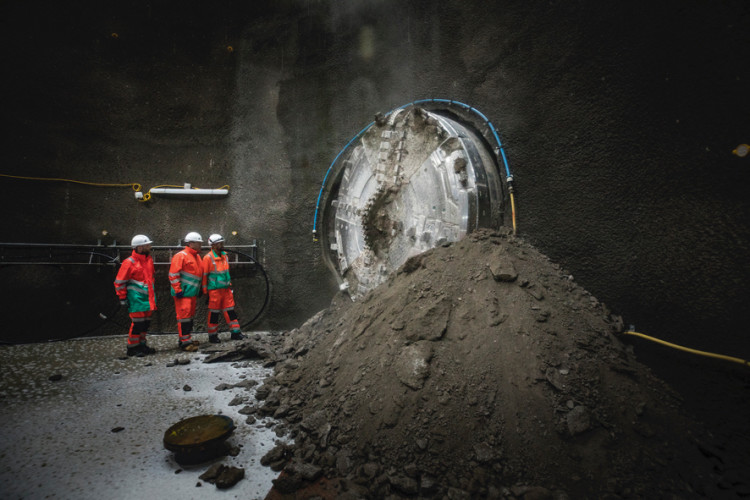Tideway, the company building the 25km sewer to stop sewage pollution in the River Thames, is restarting main tunnelling work after all but essential and safety-critical activities were put on hold at the start of the Covid-19 lockdown period in March.
In recent weeks, measures have been implemented to demonstrate compliance with the Construction Leadership Council’s Covid-19 Site Operating Procedures.
Work is now taking place on 21 Tideway sites, including underground tunnelling from Fulham to Acton and tunnelling of the smaller Frogmore Connection Tunnel in Wandsworth.
Tideway chief executive Andy Mitchell, who co-chairs the Construction Leadership Council alongside a government minister, said: “It was absolutely right that we paused our activity at the start of the pandemic. Only by planning very carefully what activities are safe are we getting our teams back to work. Our measures have been developed with our workforce and contractors and are being introduced after detailed safety reviews of every one of our sites. The measures mean we are able to get more of our work back up and running, safely, minimising delays to this vital project and contributing to wider efforts to support the UK economy.”

Individual site travel plans have been drawn up to reduce the impact on the public transport network. With around 1,000 staff expected to be working on site from this week, most will be using private transport, or walking or cycling, Tideway claims. Those who are travelling by public transport will be avoiding peak times and following public health guidance, Tideway hopes.
Those who can work from home will continue to do so.
Work on the 25km super sewer, which will run from Acton in west London to Stratford in east London, started in 2016. More than 14km of tunnel has now been constructed. The tunnel budget is £3.8bn and an additional £1.1bn has already been spent by Thames Water for preparatory works. The project is anticipated to be completed in 2024.
Got a story? Email news@theconstructionindex.co.uk



